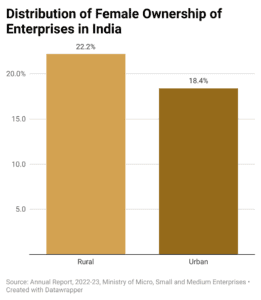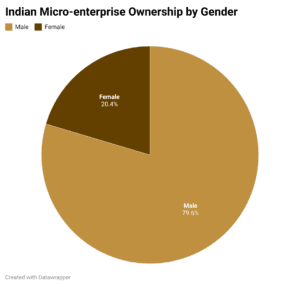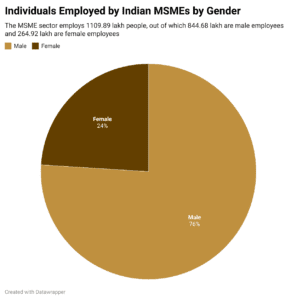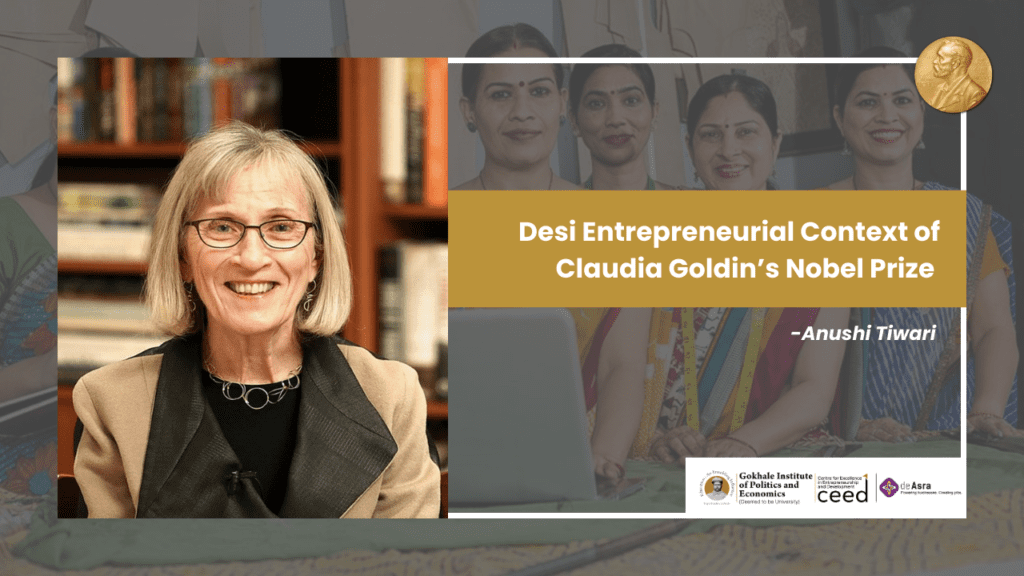“Women are more than 50% of the world’s population, so why shouldn’t we be concerned about that?” – Claudia Goldin on winning the 2023 Nobel prize in economics
As we celebrate Claudia Goldin for her much-awaited win of the 2023 Sveriges Riksbank prize in Economic Science, let us, for a moment, delve into her work. Goldin talks about the labour force participation of women in the US, which did not exhibit an upward trend, but rather a U-shaped curve:female participation at first declined in the 19th century but began to rise again in the 20th century. Her work demonstrated that several factors have historically influenced and continue to influence the supply and demand for female labour. These include opportunities for combining paid work and a family, decisions (and expectations) related to pursuing education and raising children, technical innovations, laws and norms, and the structural transformation in an economy. These findings are especially crucial for a patriarchal society driven by the norms under the context of traditions, and culture. She found that the participation of married women decreased with the transition from an agrarian to an industrialized society. This was because industrialization had made it harder for married women to work from home since they would not be able to balance the demands of their families, but later observed that the participation increased with the growth of the services sector.
With women being drastically under-represented in the world of work, and while their numbers are growing, wages are much lower than those of men. About half of women participate in the global workforce compared with 80% of men; they earn less and are also less likely to advance in their careers. However, economic development cannot be achieved without active participation of women in all aspects of life and also in the entrepreneurial phenomenon. Here, the relevance of Goldin’s work lies in understanding the significant gender gap in the entrepreneurial activity rate. Looking at the Indian entrepreneurship landscape, the total entrepreneurial activity (TEA) is at 14.4%. Out of this, the TEA for men is at 16.3% while that for women is at 12.3%. Additionally, women in India are reported to have start-up intentions at parity with men and close to the global average. However, when compared with other economies, and when it comes to gender equity in entrepreneurship, India still has a long way ahead. The Mastercard Index of Women Entrepreneurs 2021 ranks India at 57th place out of 65 countries. As per the report, India continues to lag behind its peers when it comes to having women entrepreneurs in the country, because of underlying cultural conditions and biases that prevent or discourage women from becoming entrepreneurs.

The Indian context has a high participation of informal and unorganized sectors, where women may or may not have less inclination towards business ownership. The percentage distribution of female ownership in rural and urban areas is 22.2% and 18.4% respectively. Out of the 99% of micro-enterprises in India, only 20.4 % are owned by females. Out of 1109.89 lakh employees in the MSME sector, 844.68 (76%) are male employees and the remaining 264.92 lakh (24%) are females.


The CEED report on Nano enterprises reflects only 16% of enterprises were owned by women, out of which 83% reported turnover between Rs 10 Lakh to Rs 25 Lakh. Most of these women were involved in service sectors like beauty businesses followed by fashion and food. Only 4% of women were involved in businesses related to finance and technology.
Therefore, to highlight the importance of women in entrepreneurship is not merely to spark a conversation but to ignite a transformative change in the entrepreneurial ecosystem. As emphasized by the Nobel Laureate to work towards increasing enrolment in higher education and enhancing opportunities for women across different sectors, India would also need access to financial resources through direct fiscal interventions for women entrepreneurs. It will need to develop a robust care infrastructure and strengthen the service sector that would encourage women to not only be a part of the labour force but also use their skills to upgrade their and their family’s livelihood. The recognition of Claudia Goldin’s work serves as a testament to the urgent need to address, discuss, and find solutions to the gender disparities in the entrepreneurial ecosystem.
“When I say to women, I’m talking about why women won, and they look at me and they say, what are you talking about? We won? And I say to them, don’t you realize that in my adult lifetime women gained the legal right to have a job when they are pregnant, when they have children, and when they’re capable of being pregnant?” – Claudia Goldin on winning the 2023 Nobel prize in economics for her work on women in the labour market. ■■






